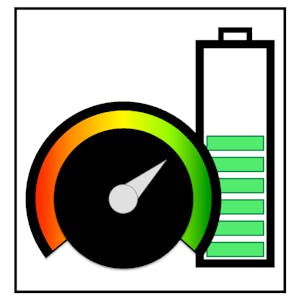Battery State-of-Charge (SOC) Estimation
This course can also be taken for academic credit as ECEA 5732, part of CU Boulder’s Master of Science in Electrical Engineering degree.In this course, you will learn how to implement different state-of-charge estimation methods and to evaluate their relative merits. By the end of the course, you will be able to:
- Implement simple voltage-based and current-based state-of-charge estimators and understand their limitations
- Explain the purpose of each step in the sequential-probabilistic-inference solution
- Execute provided Octave/MATLAB script for a linear Kalman filter and evaluate results
- Execute provided Octave/MATLAB script for state-of-charge estimation using an extended Kalman filter on lab-test data and evaluate results
- Execute provided Octave/MATLAB script for state-of-charge estimation using a sigma-point Kalman filter on lab-test data and evaluate results
- Implement method to detect and discard faulty voltage-sensor measurements
How to implement state-of-charge (SOC) estimators for lithium-ion battery cells
Syllabus
Syllabus - What you will learn from this course
Week 1
The importance of a good SOC estimator
Week 2
Introducing the linear Kalman filter as a state estimator
Week 3
Coming to understand the linear Kalman filter
Week 4
Cell SOC estimation using an extended Kalman filter
Week 5
Cell SOC estimation using a sigma-point Kalman filter
Week 6
Improving computational efficiency using the bar-delta method
Week 7
Capstone project
FAQ
When will I have access to the lectures and assignments?
Access to lectures and assignments depends on your type of enrollment. If you take a course in audit mode, you will be able to see most course materials for free. To access graded assignments and to earn a Certificate, you will need to purchase the Certificate experience, during or after your audit. If you don't see the audit option:
The course may not offer an audit option. You can try a Free Trial instead, or apply for Financial Aid.
The course may offer 'Full Course, No Certificate' instead. This option lets you see all course materials, submit required assessments, and get a final grade. This also means that you will not be able to purchase a Certificate experience.
What will I get if I subscribe to this Specialization?
When you enroll in the course, you get access to all of the courses in the Specialization, and you earn a certificate when you complete the work. Your electronic Certificate will be added to your Accomplishments page - from there, you can print your Certificate or add it to your LinkedIn profile. If you only want to read and view the course content, you can audit the course for free.
Is financial aid available?
Yes. In select learning programs, you can apply for financial aid or a scholarship if you can’t afford the enrollment fee. If fin aid or scholarship is available for your learning program selection, you’ll find a link to apply on the description page.
Reviews
Excellent course that has very clear teaching material and engaging tests and assignments. A great foundational course for battery algorithms.
The course was well planned and organised! There is flexibility in the course deadline which is appreciable and suitable for students, Working professionals, faculties.
Capstone projects could be more demanding. Maybe you can provide a multiple temperatures example.
Using computer models to simulate battery behavior and estimate SOH was a skill I did not have before this course. It was taught in a gradual pace that was comfortable.
